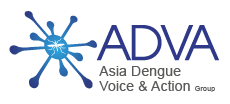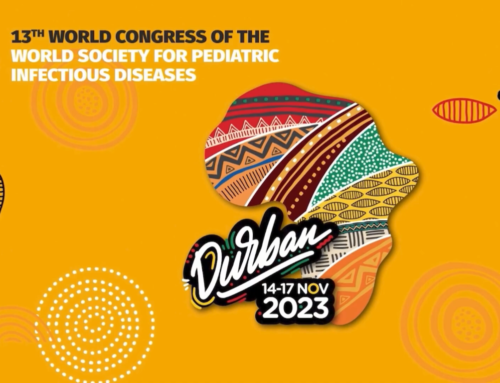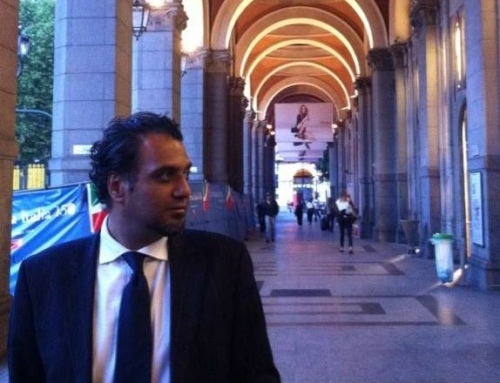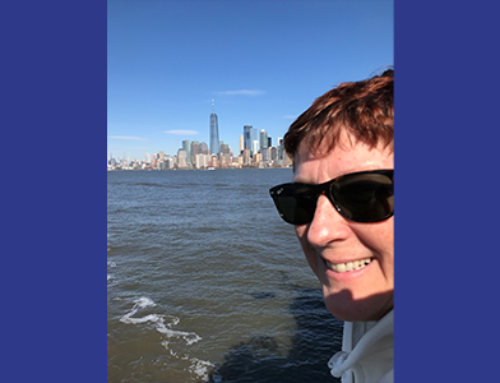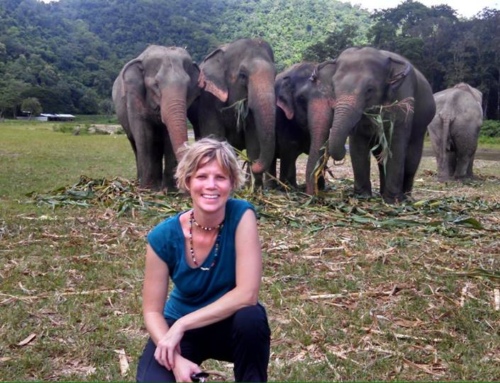“I lead the vaccine delivery work of Bill & Melinda Gates Foundation in India. In this role there are four primary aspects to my work. ”
“One, to prioritize areas in which Bill & Melinda Gates Foundation can effectively partner with the Ministry. With our limited resources, we can only collaborate on limited specific areas. Therefore, we have to prioritize those areas that can have maximum impact and can be sustained within existing programs. We do this by constantly generating evidence that can be translated to action. Based on the evidences generated, we help prioritize our work.”
“Two, we bring in new resources in technology. For example, we worked with partners to boost vaccine supply chain in the country with a technology called electronic vaccine intelligence network (eVIN). A pilot was conducted and now the Indian Government has found this technology so effective that it has planned to scale it up with domestic resources.”
“Three, we identify highly talented partners in forms of institutions, academia and researchers and connect them to the overall work of the Government in vaccine delivery. We build collaborations with a range of partners from UN agencies to international NGOs to research organizations to vaccine manufacturers to academic institutions at both domestic and international arena to strengthen this collaboration.”
“And fourth, we ensure that voices of leaders are rallied around vaccines. From voices of our Co-Chairs, Bill & Melinda Gates, we also look for voices within and outside the country from a range of social, cultural and scientific domain to advocate with the government on scaling up vaccines in the country.”
“My role is to ensure that BMGF can coordinate all of these functions and work with the Government effectively to reach our common goal of reaching every child in India with all the essential vaccines.”
1/5
“Beyond my medical school textbooks and class lectures, I first heard about Dengue in 1990 when I treated the first case as a House-physician in the Medicine Out- Patient Department of Shambhu Nath Pandit Hospital in Kolkata, India. He was a middle-aged man who had fever that did not subside for a week. We treated him with presumptive treatment for malaria. Laboratory results were inconclusive. Our Unit Professor advised advance tests from a more sophisticated laboratory at a referral tertiary hospital. The patient was diagnosed as a case of Dengue. Fever subsequently subsided and the patient was discharged.”
“My son suffered from Dengue when he was around 13 years old. Those were anxious days for me and his mother. We regularly checked for any signs of bleeding. And the itching that he suffered in the recovery phase was very painful for him and for us to watch. Those were anxious seven days in our life.”
2/5
“I was born in the mid-sixties in a small district town of India called Jalpaiguri. My father was an ENT surgeon in the district hospital. Jalpaiguri is a beautiful town close to the hills, forests and surrounded by tea gardens. My father was in Government services and with each transfer I changed schools. From schools run by Jesuit priests to boarding schools run by Hindu Monks, I learned how to pray and seek blessings in many languages and cultures early in life.”
“In 1983 I joined Medical College. My first job was within a month of my marriage in 1992. I joined a small NGO in a deep desert of Rajasthan State in India. The thrill of travelling to remote villages early morning with vaccines and medicines was a unique experience. After about a year and half, I joined Government health Service and returned to Jalpaiguri, the district where my father had begun his career and I was born. I was a Primary Health Centre Medical Officer for about four years.”
“As a Medical Officer, I got involved in one of the key public health campaigns in India, the Pulse Polio Program in 1995. In 1997, WHO launched its National Polio Surveillance Program (NPSP) with Government of India. I joined the first batch of Surveillance Medical Officers in the NPSP program of WHO. Three years on, I was given additional charge as a Regional Coordinator managing 22 field Units of NPSP in India. After seven years of services in WHO-NPSP, I received an offer to lead the Japanese Encephalitis (JE) Program of PATH in India in 2004.”
“A massive outbreak of JE happened in 2005 in India and PATH worked closely with the Ministry to introduce and scale up a novel vaccine from China, live attenuated SA-14-14-2 from China National Biotech Group in Chengdu, China.
“Eventually I led the immunization portfolio of PATH in India and Nepal.”
3/5
“In 2008, I joined a US based non-profit drug development organization, Institute for OneWorld Health. The company was involved in developing affordable, high quality drugs for neglected Tropical Diseases like Visceral leishmaniasis. The drug, Paromomycin was tested in India and approved for use in public health programs. I additionally managed a multi country JE Project to work with governments in 8 countries in South Asia and Western Pacific Regions of WHO for introduction and scale up of JE vaccine. In 2013, I joined Bill & Melinda Gates Foundation. I currently manage the vaccine delivery program of BMGF in India.”
“My first contact with BMGF was when I joined PATH and managed the JE Program of PATH in India. The JE project was funded by BMGF. Since 2004, I have managed Projects funded by BMGF only. Till date I have managed more than 10 projects of BMGF wearing either a grantee or a donor apron. In 2012, BMGF was slowly transitioning its flagship HIV AIDS program, Avahan in India. A new strategy was developed for its engagement in Vaccine Delivery supporting the Ministry’s efforts in scaling up immunization services in India. I joined in 2013 and have worked with partners, Ministry and an internal team across many sectors to support the Ministry’s vaccine delivery program in India.”
4/5
“Vaccines save lives. They help wipe out dreadful diseases from the world. Smallpox. Polio is on its way out. These are such bright examples. I have seen children and adults die from complications of diseases like measles, diphtheria, Japanese Encephalitis. And I think this is unacceptable because these are preventable with vaccines that are available. Therefore, I am committed to vaccines. Because vaccines work and vaccines prevent deaths and disabilities from preventable diseases. Every case of Polio I see today reminds me that theses men and women could have lived a much better life had they been born a few decades later.
“The general public believes in vaccines at large. We just need to continue to have their trust with truthful messages. With the current political commitment in the country, there is a focused drive on vaccines in India. One issue that we are currently working on is in integrating vaccine delivery in the larger public health program. That is an area that will require much collaboration and patient wait for integration. We are preparing for that with evidence and tools.”
“If I weren’t involved in healthcare? I have always desired to be a Chef. I do not cook much. But that is a dream that I have. I truly cherish the satisfaction of a good meal. I love to watch the expressions on a face after a first bite of a tasty food. May be one day. I will cook a dish that will bring smile to faces. Yes, I do want to be a Chef too.”
Raj Shankar Ghosh,
Deputy Director,
Vaccine Delivery, India Country Office,
Bill & Melinda Gates Foundation (https://www.facebook.com/gatesfoundation/).
Follow him on Twitter at twitter.com/lovingvaccines
First published to Facebook on 11 March 2020
